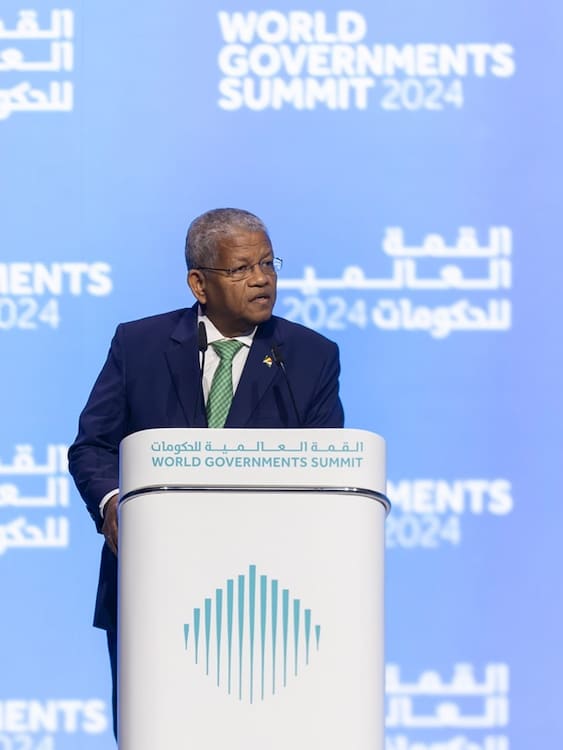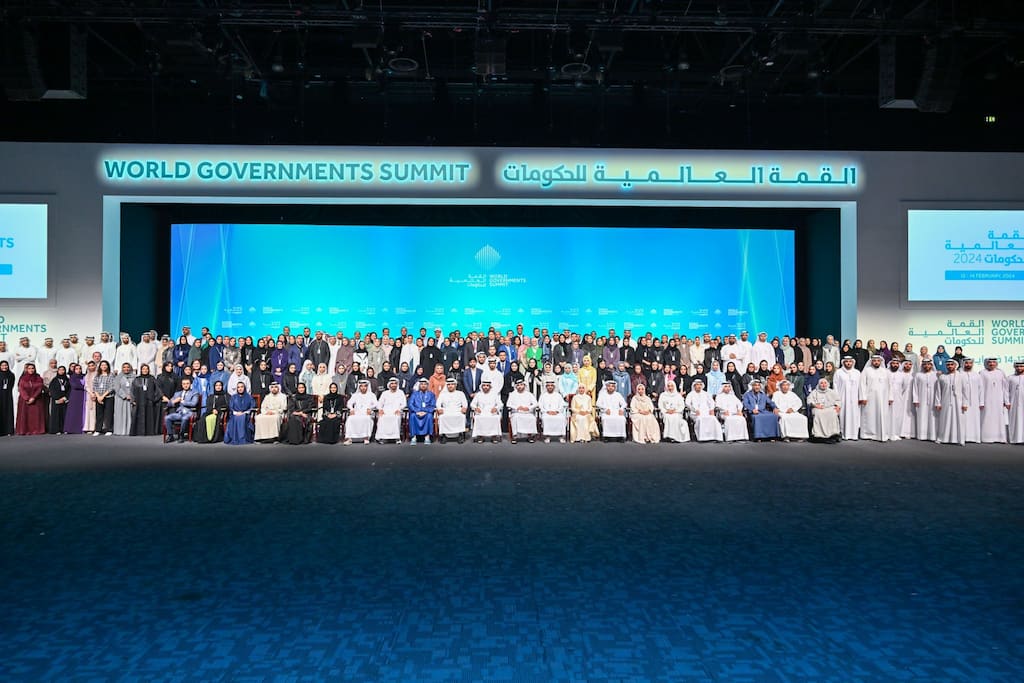14 February 2024
President Wavel Ramkalawan has declared that Seychelles aims to align its tourism strategies with the UN sustainable development goals and accurately assess the economic benefits of tourism through its collaboration with the UN Tourism (formerly United Nations World Tourism Organisation UNWTO).
According to a report on Seychelles News Agency, President Ramkalawan made the statement in his address on Seychelles’ initiatives and approaches to ensure sustainable tourism and balancing preservation at the World Governments Summit (WGS) 2024 in Dubai on Tuesday 13 February 2024.

“Seychelles recognises the importance of accurately measuring the economic impact of tourism. Collaboration with the United Nations World Tourism Organisation on the tourism satellite account project has been instrumental in understanding the industry’s contribution to GDP, employment, and foreign exchange earnings,” he said.
The head of state said that Seychelles has long been a global leader in conservation, implementing various initiatives to promote sustainable tourism and safeguard the nation’s ecological balance and economic wellbeing.

“Seychelles has established the Seychelles Sustainable Tourism label, a certification programme that recognises tourism accommodation, operators, and services adhering to sustainable practices such as efficient waste management, energy conservation, community engagement, and of course, environmental protection,” he said.
Tourism is the top contributor to the economy of Seychelles, a group of 115 islands in the western Indian Ocean, followed by fisheries. Ramkalawan said that central to the island nation’s approach is the commitment to the Blue Economy and this includes designating a significant portion of the country’s marine territory as protected areas.
“These efforts are crucial in preserving biodiversity and safeguarding marine ecosystems for future generations. Maybe too often we think of today, but Seychelles is concerned about tomorrow and what legacy we will leave for future generations,” he highlighted.
“I have mentioned on this podium before that Seychelles is now protecting seagrass and our mangrove forests at 100 percent and this means that not only do we clean up what we emit but that we also clean up what the world emits,” he added.
Ramkalawan said that Seychelles also emphasises community involvement and empowerment in tourism development encouraging local participation in decision-making processes. The island nation is also implementing community-based tourism projects to ensure that communities benefit from tourism revenue. He stressed the importance of international cooperation and partnerships for Seychelles to realise its vision for sustainable island development.
Ramkalawan said the collaboration with international partners provides access to funding, expertise and technology transfer crucial for maximising the economic potential of ocean resources while ensuring their long term sustainability. “I take this opportunity speaking of international cooperation and partnership to once again advocate for the adoption of a Multidimensional Vulnerability Index (MVI), which calls for the comprehensive assessment of vulnerabilities to be taken into consideration and not only the traditional economic metrics for a country to access concessional financing for its development needs,” he added.
He said that Seychelles is not begging and not asking for grants but “what we are asking for is the opportunity to access concessional finance. In the absence of the MVI, SIDS (small island developing states) like Seychelles and Mauritius will continue to be excluded from much needed finance for their commitment to sustainable development resilience-building efforts.”
Ramkalawan concluded by saying, “Through international cooperation, community involvement, and innovative initiatives Seychelles aims to advance its islands’ development objective, build resilience against environmental challenges and foster inclusive and equitable economic growth.”




